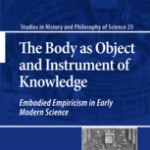Avancées biomédicales et protection des libertés
Vendredi 04 juin 2010 | Paris (75004)
Le colloque s’articulera autour de quatre tables rondes : évolution de la médecine de la reproduction, enjeux éthiques des neurosciences et protection des données personnelles, fin de vie et euthanasie, recherche médicale : enjeux nationaux et communautaires.
Programme
9 h 30 : Accueil par Monsieur Gérard PLUYETTE, Conseiller Doyen de la 1re Chambre Civile de la Cour de Cassation représentant Monsieur Vincent LAMANDA, Premier président de la Cour de Cassation
9 h 40 : Introduction par :
- Jean MICHAUD, Conseiller honoraire à la Cour de Cassation
- Pascal BINCZAK, Président de l’Université Paris VIII
- Hélène GAUMONT-PRAT, Professeur à l’Université Paris VIII, ancien membre du Comité Consultatif National d’Ethique
- Philippe BICLET, Rédacteur en chef de Médecine & Droit
de 10 h à 11 h 30
1ERE TABLE RONDE – EVOLUTION DE LA MEDECINE DE LA REPRODUCTION
Président de séance : Hélène GAUMONT-PRAT
Frédérique DREIFUSS-NETTER, Conseiller à la Cour de Cassation
– Quels principes pour un droit de la procréation assistée ?
Claude SUREAU, membre du Comité Consultatif National d’Ethique, ancien président de l’Académie de Médecine
– La vie après la mort, de l’incertitude juridique à l’interrogation éthique
Brigitte FEUILLET-LIGER, Professeur à l’Université de Rennesmembre de l’Institut Universitaire de France
– La levée de l’anonymat en matière de PMA, une question complexe
Ayegül ELVERIS, Administratrice, Division de la Bioéthique au Conseil de l’Europe
– La jurisprudence de la CEDH en matière de PMA
de 11 h 45 à 12 h 45
2EME TABLE RONDE – RECHERCHE MEDICALE : ENJEUX NATIONAUX ET COMMUNAUTAIRES
Président de séance : Frédérique LESAULNIER
François LEMAIRE, Professeur, Président du Département de la Recherche Clinique et du Développement (DRCD) de l’AP-HP
– Pourquoi réformer la législation relative à la recherche médicale en France ?
Marie-Thérèse HERMANGE, Sénateur et rapporteur de la proposition de loi n° 1372 au Sénat
– Vers un cadre unique de contrôle pour l’ensemble des recherches sur la personne ?
Marie-Hélène MITJAVILE, Conseiller d’Etat, Membre de la CNIL en charge du secteur de la recherche médicale
– Législation, informatique et libertés et recherche médicale
Claude GRELLIER, Conseiller à la Cour de Cassation, Professeur associé à l’Université Paris VIII
– Recherche médicale et indemnisation
Péteris ZILGALVIS, Commission européenne, DG Recherche, Chef de l’Unité Gouvernance et Ethique, Bruxelles
– Recherche médicale et approche européenne
DEJEUNER LIBRE
de 14 h 15 à 15h30
3EME TABLE RONDE – ENJEUX ETHIQUES DES NEUROSCIENCES ET PROTECTION DES DONNÉES PERSONNELLES
Président de séance : Carol JONAS
Hervé CHNEIWEISS, Neurobiologiste, directeur de recherches au CNRS,Directeur du Laboratoire laboratoire « Plasticité Gliale » INSERM U 894
– Cerveau préservé, réparé, amélioré
Franck RAMUS, Directeur de recherches, Laboratoire de Sciences Cognitives et Psycholinguistique, Ecole Normale Supérieure
– Quel pouvoir prédictif de la génétique et des neurosciences, et quels problèmes ?
Christian BYK, Conseiller à la Cour d’Appel, French Committee for UNESCO
– Neurosciences et administration de la preuve aux Etats-Unis
François TERRE, Professeur émérite de l’Université Paris II, Panthéon-Assas, Membre de l’Académie des sciences morales et politiques
– Droit, éthique et neurosciences
Willem DEBEUCKELAERE, Président de la Commission de la Protection de la vie privée (Belgique)
– ADN et la protection de la vie privée
de 15 h 45 à 16 h 45
4EME TABLE RONDE – FIN DE VIE ET EUTHANASIE
Président de séance : Philippe BICLET
Louis PUYBASSET, Professeur des Universités, Chef de service Neuroréanimation Chirurgicale à l’Hôpital de la Pitié-Salpêtrière
– Problèmes spécifiques de la fin de vie du cérébrolésé
Isabelle ERNY, Ancienne Présidente du Comité Directeur pour la Bioéthique au Conseil de l’Europe, Juriste à la division droits, éthique et appui juridique Direction générale de la santé
– Les principes de la convention d’Oviedo et le processus décisionnel relatif aux traitements médicaux en fin de vie : le regard du comité directeur de bioéthique du Conseil de l’Europe
Sadek BELOUCIF, Professeur de médecine, ancien membre du Comité Consultatif National d’Ethique, Président du conseil d’orientation de l’Agence de la biomédecine
– Questions éthiques et fin de vie
Roland KERZMANN, Conseil National Belge de l’Ordre des Médecins, Commission des Affaires Internationales
– Pratique dépénalisée de l’euthanasie en Belgique
Rapport de synthèse, Georges KUTUKDJIAN, ancien Secrétaire général du Comité international de bioéthique de l’UNESCO
Programme sous réserve de modifications ultérieures.
Chaque table ronde sera suivie de débats modérés par Marianne GOMEZ, Chef de service Adjointe au service « France » de La Croix.
Lieu
- Paris (75004) (Cour de cassation, 5 rue de Harlay)
Contact
- Mathilde DOCQUIN
courriel : m [point] docquin (at) elsevier [point] fr62 rue Camille Desmoulins
92442 ISSY LES MOULINEAUX

